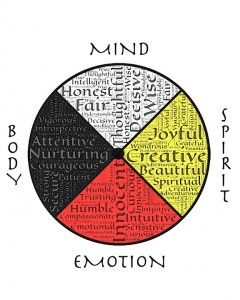Welcome back from midterms. This was an immensely stressful week for me and I thank green tea, 30 minute naps, brisk walks, hot showers and study-focused playlists to help get me through writing over 4,500 words, intense note-taking and endless readings and re-readings. Stress management is key when you are overwhelmed, and these were some of the techniques that I used to decompress. Mental health challenges are one of the biggest issues facing students in recent decades. Many underlying mental health issues can implode upon attending university. External and internal stressors such as being under-slept, eating poorly, changing relationships and being away from your family, experiencing isolation, moving to a new city or relocating, navigating your way through a new experience and finding your identity, in addition to financial stress can all accumulate and leave you exhausted, burned-out, depressed or anxious. This was something I experienced last year.
I’ve always considered myself a bit of a worrier and thought perhaps I was more neurotic than my peers but found that I could manage my anxiety through minimal effort. This changed when I entered into first-year university. In addition to personal factors of leaving a highly toxic job and grieving over the loss of my father, the added stress of financial pressure and my determination to overachieve left me spiralling into panic attacks. Anxiety and panic attacks are not the same thing, which I soon learned. My panic attacks were so intense that I literally felt as though I was going to die. My chest would get so tight that I couldn’t breathe, and I would feel as though I was about to pass out and would become filled with an extreme dread. I was hospitalized three times, where I had to undergo tests, prescribed anti-anxiety medication and then released. This was a band-aid solution for a larger and ongoing problem (not to mention a massive waste of time and resources), so I finally sought help through the Heath and Wellness Centre at the university.Navigating wellness services can feel like a challenge for some, but luckily, it was much simpler and faster than I had anticipated. I logged onto the Health and Wellness Centre website and booked an initial assessment with a nurse. As a full or part-time student of the university who has paid appropriate fees, you are covered for health and wellness services. I was nervous (naturally) about my first appointment, but the nurse who did my assessment was empathetic and made me feel comfortable. I was then referred to a psychiatrist, whom I still see, as a means of discussing medication to help manage my anxiety. However, I want to stress that medication is NOT the only option available to manage your mental health. A combination of medication, meditation, exercise and cutting back on certain lifestyle choices has been the key for me to find a balance. The Health and Welness Centre offers everything from wellness workshops and meditation to grief and trauma counselling. There are referral services available and the programs are designed to fit what works best for you. As well, there are also services that offer anonymity if you do not want to/have time to discuss your issues in person.
In addition, First Nations House has Elders in residence, Lee Maracle and Andrew Wesley, whom offer traditional knowledge, support, guidance and teachings. (For more information about Elder services at FNH, click here)
If you are an Indigenous student or a partner of an Indigenous student, there is also the Anishnawbe Health Toronto which incorporates traditional healings such as sweat lodges, shaking tent, vision quests, etc. with Western medicine for a well-rounded and comprehensive health care approach.




0 comments on “How Are You Feeling Today? ?”